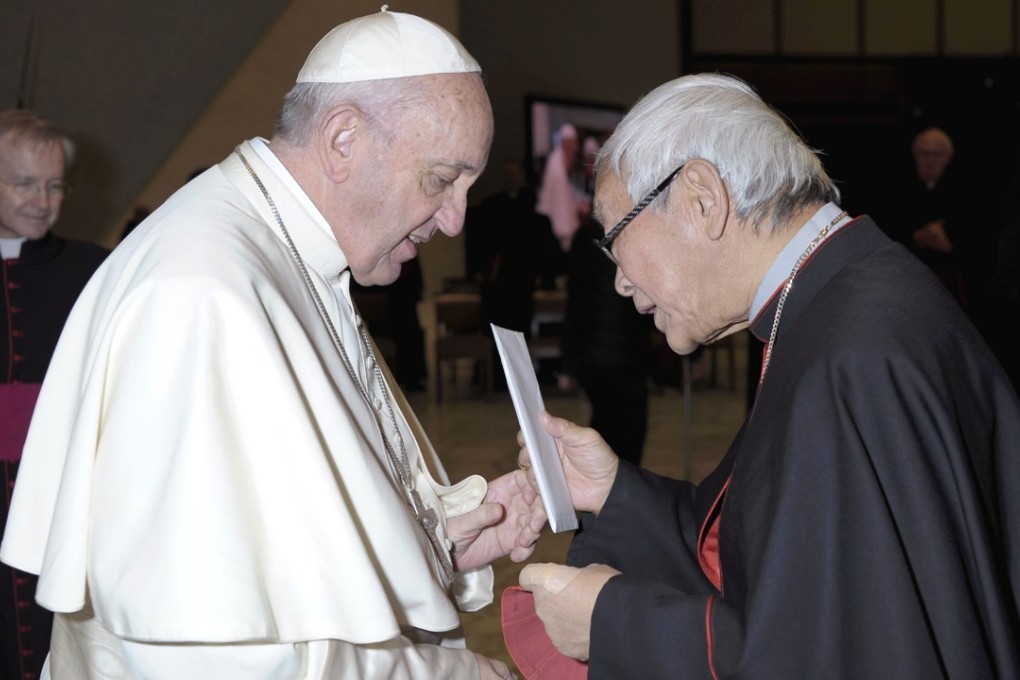Vatican rebukes retired Hong Kong cardinal after remarks on ‘selling out’ of Chinese Catholics
Statement from Holy See says Pope follows Church’s situation in China ‘with special attention’

In a statement referring to news on a “presumed difference of thought and action between the Holy Father and its administrative, the Holy See said the pontiff had been in close contact with his collaborators over the Vatican’s handling of China.
“The Pope is in constant contact with his collaborators, in particular in the Secretariat of State, on Chinese issues, and is informed by them faithfully and in detail on the situation of the Catholic Church in China and on the steps in the dialogue in progress between the Holy See and the People’s Republic of China, which he follows with special attention,” press office director Greg Burke said.
He added: “It is therefore surprising and regrettable that the contrary is affirmed by people in the Church, thus fostering confusion and controversy”.